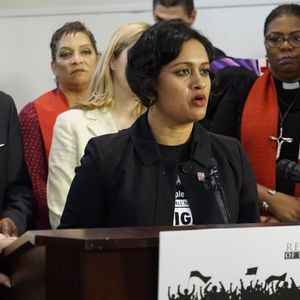2021 Research & Policy Teams
Our 2nd cohort of interdisciplinary Research & Policy Teams have been formed and funded. Please read about them below.
1) Securing a T-Visa: An Exploration of Inequality in Trafficking Protection
Applying for the T visa, a specialized form of immigration relief for immigrant survivors of trafficking, is shaped by intersecting stratifications of race and gender. Framed by an immigrant’s legal status as an axis of inequality, and the way logistics and the bureaucracy of law can hinder access, the researchers aim to study: Who is (un) successful in accessing T-visas and why? The question will be explored using surveys and interviews of lawyers who work on T-1 visa applications and of survivors of trafficking.
Meet the Team:
-

Julie Dahlstrom
Co-Principal Investigator
-

Heba Gowayed
Co-Principal Investigator
-

Ziba Cranmer
-

Phillip Martin
-

Jenifer McKim
-

Catherine Piedad
2) YPAR Activism and Organizing as a Mental Health Intervention for BIPOC Youth: Building the Case for Practice Informed Evidence
The investigators will partner with colleagues at the City School to engage in Youth-Led Participatory Action Research (YPAR) to (1) create the conditions associated with youth empowerment and collective action to help create best practices for mental health and collective care for young BIPOC people. They hypothesize that organizing and political education can be effective mental health interventions and that YPAR can advance antiracist policy and practice. To evaluate the impacts of YPAR, they will use exploratory single-case study design, utilizing pre/post assessments and exit interviews with youth, weekly debriefs with program staff, program observations, key informant interviews with community stakeholders and municipal leaders, document review, and media analysis.
Meet the Team:
-

Dawn Belkin Martinez
Co-Principal Investigator
-

Linda Sprague Martinez
Co-Principal Investigator
-

Amatullah Mervin
-

Tara Deviki Venkatraman
3) Data Drives Change: A Pilot Study to Identify Black/White Disparities in Hospital Breastfeeding Support
Hospital-based breastfeeding education and support increases exclusive breastfeeding and is endorsed by professional medical organizations and the CDC; yet tracking of the implementation and receipt of breastfeeding support by maternal race is not required and is rare. Racial disparities in these practices is unknown, unreported, and presents a gap in knowledge regarding a critical perinatal health outcome. The investigators will prospectively track maternal report of receipt of these practices at two Boston hospitals, using short surveys with both quantitative and qualitative responses.
Meet the Team:
-

Afi Mansa Semenya
Co-Principal Investigator
-

Katherine Standish
Co-Principal Investigator
-

Hanna Amanuel
-

Anne CC Lee
-

Anne Merewood
-

Meg Parker
-

Barbara Philipp
-

Mihaela (Miha) Podovei
4) Examining child allowance and child/family economic well-being among immigrant families and families of color
Economic projections show the recent, historic passage of a near-universal child allowance through key changes to the Child Tax Credit (CTC) could reduce child poverty by half in 2021 and narrow racial disparities in child poverty rates. This research project will deploy qualitative and quantitative methods through a partnership between Children’s HealthWatch and the Kairos Center. The study will examine the racial health equity implications of the expanded CTC and understand whether families expected to benefit from the expanded CTC 1) access the credit, 2) afford basic needs, including food, housing, and access health care, and 3) see improvement in their children’s health and development and parents’ physical and mental health. The role of race/ethnicity and nativity will also be specifically explored. Findings from this study will be deployed to advocate for permanent, inclusive policies and equitable implementation efforts surrounding the CTC.
Meet the Team:
-

Megan Sandel
Principal Investigator
-

Shailly Barnes
-

Allison Bovell-Ammon
-

Diana Burnett
-

Stephanie Ettinger de Cuba
-

Melody Stanford Martin
5) Investigating the Impact of Census’ Disclosure Avoidance System on Marginalized Communities
The United States Census Bureau will be using a mathematical definition of privacy called “Differential Privacy” in the disclosure avoidance system for the 2020 Census. While this technique will significantly enhance the confidentiality of Census data, there may also be downstream effects on the government systems that rely on Census products to function or provide services. For instance, both allocation of federal funding and demonstrating that voting districts have been racially gerrymandered critically rely on Census data. The research team will investigate how these downstream effects could harm marginalized communities and identify ways to mitigate that harm. By understanding how the differential privacy technique affects census data and how it impacts marginalized communities, including racial minorities, policy recommendations can be developed to support voting rights and social services for these communities.
Meet the Team:

